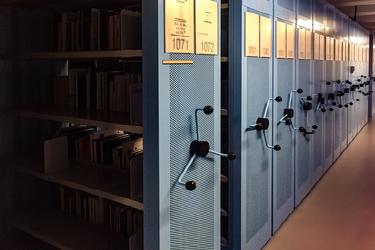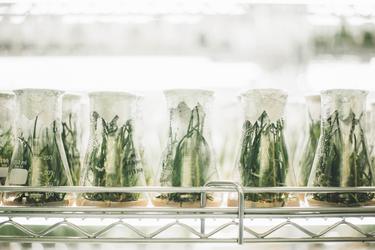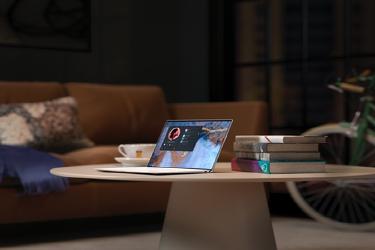
What’s wrong with collecting pieces of information? Nothing unless it’s your default reaction to all of it. Ever saved a webpage because “It might have changed later” or “What if I miss something in this article? I should keep it around”. That’s probably a sign of over-collection on your part. If not kept in check or stopped, this behavior can completely break your note system. The worst-case might even make you completely give up taking notes altogether or losing all your previously taken notes. Thankfully this is not something that needs to happen; you can prevent or even fix it if you know the reasons and symptoms of it. I will explore here some of them with the problems they can create.
Over-collection
Do not save everything but the things that “resonate” with you, even if you don’t know yet the use they will have
Collection for the sack of it, or over-collection, is often a problem that arises when there’s no friction or filters to get things in your note system. It’s also a mindset; “I need to make sure I save this for later, if I need it,” “I need to save this whole web page, in case it goes away, it might be important,” etc., ever had those thoughts? It seems fair at first glance, and if you only do it sometimes, it won’t make anything break. Some things legitimately need to be preserved in time for an extended period after all, but as a default, it’s dangerous.
Like everything, there are exceptions to this I want to address upfront before we continue. One of the most obvious is if you’re doing work that requires exact quoting with footnote and references. If that’s the case in your process, usually in academia or a related field, then you should save all the exact sources as is. That is the only way you can quote verbatim and reference materials which is a requirement in your case. I’d still argue it’s better for this use-case to use an application made specifically for this purpose, like Zotero. Yet, you could make an argument about centralizing the source material with their notes. You will still be susceptible to some of the same noise and bloating issues, but given that it’s a requirement, it could be an acceptable tradeoff.
With this in mind, let’s look at some of those problems and traps and their consequences on your system.
Noise and friction problem
The quality of a workflow’s outputs is fundamentally limited by the quality of its inputs. Garbage in, garbage out.
When everything you do is collect, collect every possible variation, all the sources, and every single reference, you end up with a lot of “stuff” instead of a lot of ideas and notes. That creates stress in your notes system since most of those source materials and references saved for the sack of it won’t be high quality. Most of that “stuff” will be noisy things like a web page that add no value and create friction in the whole system. At that point, when you have a lot of accumulated noisy things that pile up, it gets tough to do anything. One of the most common culprits for this is websites, saving a full page from an article. Why would you need to keep a whole webpage in your note app?
In a typical use-case, you take note of the article, with highlights or other means, mix in your ideas from reading it, add that to your note and move on. At this point, if the website gets changed or even removed doesn’t matter. You already got the ideas from that piece of content, and they’re in your notes. From that point, the ideas will mingle and transform with your other notes and turn into something else (hopefully), so the exact copy of the original site shouldn’t matter. The same applies to most other source material, books, PDF, webinars, videos; there’s nearly never a reason to save those once you consumed them other than the fear of missing out.
On the other hand, if you save each article, you come across (even if the saved version contains your highlights), this is where the noise goes exponential. You add a webpage daily as you read things, and those pile up in your note vault beside the other notes. That will quickly create a lot of friction and stress in your system when trying to get things done. Suddenly search will return many seemingly random non-relevant results because they contain that word on the page for SEO reason. It’s also not just search; most of your note application will probably get affected, auto-complete will have 2x more results for each query, graphs will have many random meaningless connections, etc. On top of that, most applications will slow down as the content grows, and most web pages will be a lot bigger than a note typed by you, so as your collection of random web pages increases exponentially, so will the size of the system. Sadly, that increase in size won’t mean you will get more ideas or connections in your notes, just more noise.
False serendipity
Each added bit of information, filtered only by our interest, contributes to our future understanding, thinking, and writing. And the best ideas are usually the ones we haven’t anticipated anyway.
The idea that saving more material will somehow create more serendipity across ideas, which in turn will help you produce more, is also false. Serendipity doesn’t require a massive amount of notes or ideas to work; it just happens as you use your notes and see patterns or remember past articles, notes, etc. To find new exciting ideas related to a topic or a project, you need to be able to, first, see your collected ideas in some form. Often this will be in the form of a note list or a gallery view of a folder that you can quickly scan to see what catches your eyes while you search around. To work well, this requires an environment where you can see multiple varied notes, often across their folders, tags, or other forms of classification, but you need to see your notes. That environment is often the search box or the note “explorer” or both since usually both of those will allow you to see notes across classification and contain varied notes.
Great, so the more thing there is, the better the chance they collide and create a breakthrough, right? Right, if it’s high-quality, relevant notes that you can work with. If you fill your system with random webpages and noise, it might get to a point where it’s even hard to find notes across all the noise, let alone find new connections. When you over save website and PDF and other noisy things with your note, there might be a chance they will give you a new idea, but what’s most likely to happen is a lot of false positive. As we touched above, the main reason is that the search will get filled with results that match accidentally or for SEO reasons or other noise problems.
From that point, very quickly, you’ll end up dulled to all connections since there’s so many false positive. What’s the point of being curious and understanding how the note X and Y are connected when Y happens to contain some hidden SEO tags. Why bother opening note Z when I know it’s just going to be a random hit in this PDF. That will result in frustrations with the system or the application, or both. As humans, we also don’t like to do frustrating things, so even if you wanted to plow thru and keep going, your brain most likely would stop noticing anyway to prevent pain and frustration. Finding ideas and new connections should be fun and enjoyable, not painful and frustrating.
Fun and excitement
Your note system should be only for ideas/insight/thoughts things I will be happy to find later on, not confused.
Your note system should be a place where you have fun creating and connecting ideas. It should be an enjoyable place where you want to spend time and are excited to do so. To reach that goal, it needs to be free of noise and not bogged down; you should fill it with interesting, exciting, and novel ideas. Creative work is inherently challenging and costly in time and energy, whether writing, analysis, coding, or any other creative projects you can do with your notes. To help offset those negatives, you should make everything around those activities as fun and enjoyable as possible, which means your note system at the very least and the note application itself if there’s fun things available.
Having done a lot of the web page clipping in the past with Evernote, I can attest to the confusion, slow down, and outright frustration of finding old web pages in all my searches from either wrong OCR or random HTML tags. That’s the exact opposite of what we want in a note system. When most of my searches returned 20 results, and only 3 are actual results, it gets painful and doesn’t make me want to keep using the system. Those internal pains and friction might also not always be visible at first since they are often subconscious. Even if you don’t notice them over time, they will pile up anyway, and at that point, it’s going to be a lot harder to correct and regain trust in your system.
When things get painful or with too much friction, you will stop and call your system a failure or do something drastic like moving to another note app that “works better.” Moving to another application won’t solve the problem either it will make it worst. Since the problem comes from too many noises, if you import your previous note, you end up stuck in a loop because those noisy things are also getting imported. That cycle could last a while, but at some point, you might end up calling note bankruptcy and completely stop taking notes altogether because “I’m not a note-taker, I tried.” The other possible ending is you delete everything and start completely new, but then you will lose the actual worthy notes in the process. Those two scenarios are not how things should be, and being aware of pitfalls is the best way to prevent them and keep the notes taking fun and engaging. Putting your own words in a note for your future self to use can and should be fun, it’s also the best way to keep growing with it.
Notes vs. Sources
At this point, it’s probably apparent that writing notes in your own words and with your ideas is often a lot better than blindly importing or copying the full source. Importing highlights from an article or jotting down your thoughts after reading (or both) will always be better than trying to save the page/article. That’s because your ideas and your own words are what’s matters. The exact quote from a website you saw four years ago doesn’t matter; what matters is the reflection that that quote triggered and the article or ideas you wrote after reflecting. Put your own words into your note and work; even if it’s flawed or missing pieces, the lossy aspect of it is also part of what makes things work. Trying to remember something is also a way to trigger some serendipity and find other exploration paths and possibilities, not cramming as many things as possible in your notes.


